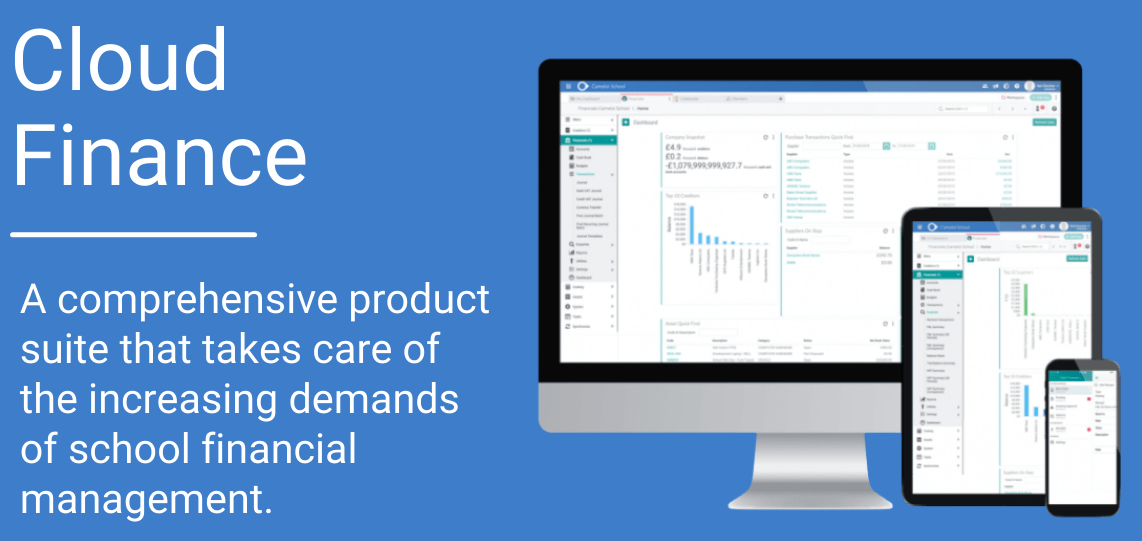In today’s fast-paced business landscape, efficient financial management is crucial for organizations of all sizes. To achieve streamlined operations and gain a competitive edge, many businesses are turning to cloud finance software. This cutting-edge technology offers a wide range of benefits, from improved accuracy and cost savings to enhanced collaboration and scalability. In this article, we will explore the key features and advantages of cloud finance software and how it can revolutionize your financial management processes.
Using the AWS Free Tier to Its Full Potential: Giving Businesses Powerful Data
A Complete Guide to google adsense sign up: Unlocking Revenue Potential
Understanding Cloud Finance Software
In this section, we will provide an overview of this software and its core functionalities. We will explain how it differs from traditional on-premises solutions and highlight its key advantages, such as accessibility, real-time data updates, and automatic backups. We will also discuss the flexibility offered by cloud-based solutions, which enable users to access financial data securely from any location or device.
Also Read This:
Discover the Top Stock Trading Platforms for Maximum Profitability
Top Personal Finance Software for Efficient Money Management
AWS Cloud and AWS RDS: Increasing Amazon’s Revenue Through a Potent Synergy
Google for Startups: Helping Business Owners Succeed with Data
Key Features and Benefits
In this section, we will delve deeper into the specific features and benefits of cloud finance software. We will highlight how these features address common challenges faced by finance teams, such as manual data entry, cumbersome reporting, and limited visibility. Some key features to cover may include:
- Automated Data Entry and Reconciliation: This software utilizes advanced technologies like optical character recognition (OCR) and machine learning algorithms to automate data entry and reconciliation processes. This saves time, minimizes errors, and improves overall data accuracy.
- Real-Time Reporting and Analytics: With cloud finance software, users can generate real-time financial reports and access up-to-date analytics dashboards. This empowers finance professionals to make informed decisions quickly, based on accurate and current financial data.
- Collaboration and Workflow Management: This software facilitates seamless collaboration among finance team members, as well as cross-functional teams. It enables multiple users to work simultaneously on the same data, track changes, and maintain version control. This streamlines the approval processes and eliminates bottlenecks.
- Integration Capabilities: This software often offers seamless integration with other business systems, such as customer relationship management (CRM) software, enterprise resource planning (ERP) systems, and payment gateways. This integration ensures data consistency and reduces manual data entry efforts.
- Scalability and Customizability: Cloud-based solutions provide businesses with the flexibility to scale their financial management systems as per their evolving needs. They can easily add or remove modules, customize workflows, and adapt to changing regulatory requirements.
SEO and Cloud Finance Software
In this section, we will explore the SEO implications of implementing this software. We will discuss how the software’s features, such as automated reporting and real-time data, contribute to improved search engine rankings. We will also emphasize the importance of optimizing keywords related to cloud finance software, as well as incorporating relevant long-tail keywords to attract targeted traffic.
Best Practices for Implementing Cloud Finance Software
In this section, we will provide readers with actionable tips and best practices for successfully implementing cloud finance software. These may include:
- Conducting a thorough needs assessment to identify the specific financial management challenges and requirements of your organization.
- Collaborating with key stakeholders, such as the finance team, IT department, and senior management, to ensure a smooth transition to the new software.
- Establishing a comprehensive data migration plan to ensure the seamless transfer of financial data from existing systems to the cloud.
- Training and educating finance team members on how to effectively utilize the software’s features and maximize its potential.
- Regularly reviewing and optimizing the software’s performance, security measures, and integrations to keep pace with evolving business needs.
Conclusion
This software offers a modern and efficient solution for organizations seeking to streamline their financial management processes. By automating manual tasks, providing real-time insights, and enhancing collaboration, it enables finance teams to work smarter, make informed decisions, and drive business growth. Embracing cloud finance software can lead to improved accuracy, cost savings, scalability, and a competitive advantage in today’s digital age. Stay ahead of the curve and revolutionize your financial management with cloud finance software today.

